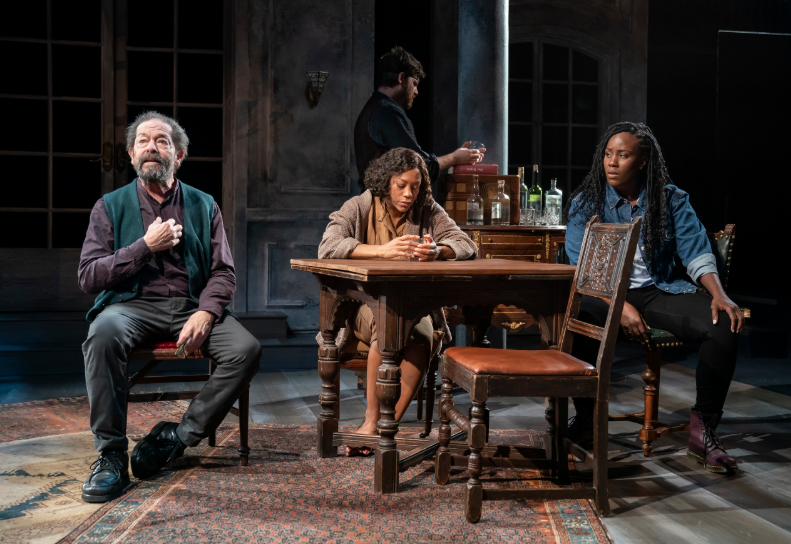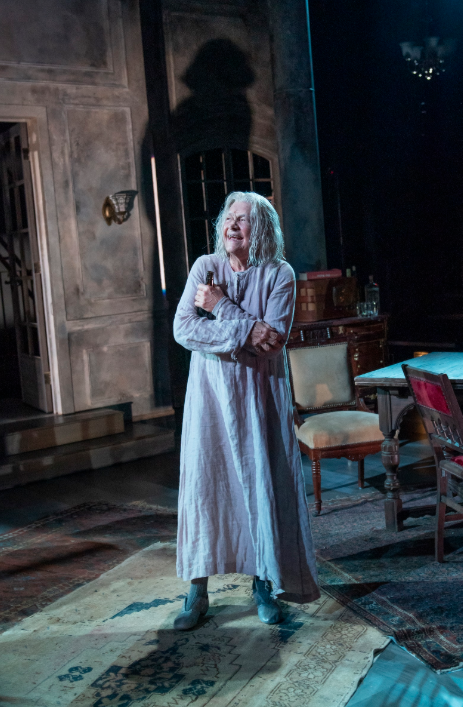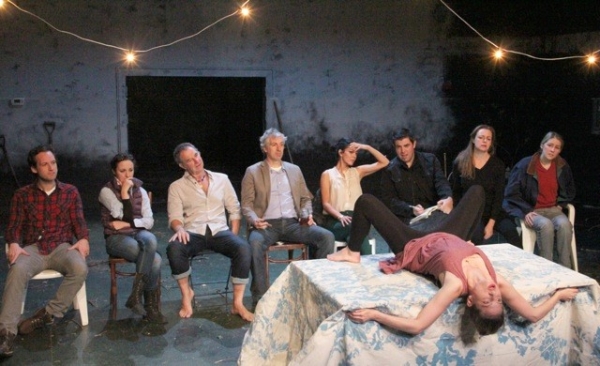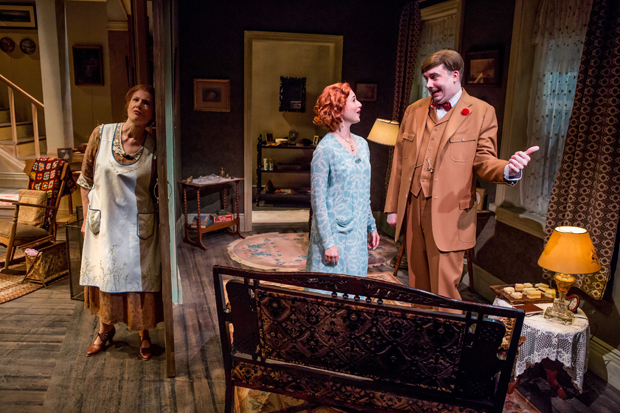by Carol Rocamora
In the boldest theatrical stroke so far this season, playwright Tony Kushner has written himself into his own play!
Granted that A Bright Room Called Day is an “old” play (his first, actually), and granted that its reviews were less than enthusiastic when it opened at the Public 34 years ago. But in its new, rewritten incarnation (again, at the Public), it speaks to our times in the most immediate and urgent way, and promises to be the most important, relevant piece of political theatre of the season.
Written in 1985, Bright Room features a group of endangered writers and artists in Berlin struggling against the terrifying rise of Hitler (1932-33), and their subsequent fate. In the original version, it was narrated by a character named Zillah (Crystal Lucas-Perry), who warns the 1985 audience that the rise of conservatism in Reagan’s America is as dangerous as the rise of Nazism. In retrospect, that may have been an overstatement, but as Kushner himself says in his masterpiece Angels in America, “nothing is lost forever.” He has plunged the new version of Bright Room into the present, by inserting a character named Xillah (Jonathan Hadary) – i.e. the playwright Kushner himself –explaining his intentions to a circumspect Zillah, whose job as narrator he is usurping. “Ignore me, I’m not here,” he instructs the audience, while he warns Zillah (of 1985) of the dangers in 2019 and those currently in power, as the scenes of the original Bright Room progress.
“After these elections (2016), things are so bad that people want to do this play,” Xillah explains to us (getting one of the biggest laughs of the evening, of which there are numerous ones.) As for Zillah, he tells her: “You’re a 34 year old writing mistake,” a remark she vigorously rebukes. Their meta-theatrical dialogue continues – on the role of the theatre in these dangerous times and this play in particular – providing the substance of the newly rewritten play.
A fine ensemble of actors and designers have committed to this work with passion and purpose. The young artists who gather in a beautiful Berlin apartment where the action takes pace (the “bright room” designed by David Rockwell and lit by John Torres), include Agnes, the hostess (Nikki M. James), a fellow screen actress named Paulinka (Grace Gummer), a Trotskyite Husz (Michael Esper), an artist (Linda Emond), and their bohemian comrade (Michael Urie). As the months pass and Nazism accelerates at an alarming rate, they watch as the opposition (including the Communist Party, which most of them support) is silenced and they face the terrifying question: to leave or to stay. Special “otherworldly” figures include a ghost called “Die Älte” (played by 92-year-old Estelle Parsons, a voice from the past and a precursor to the Prior Walters in Angels in America), and the Devil Himself (a delightful cameo by Mark Margolis). Director Oskar Eustis (the Public’s inspired artistic director and a long-time Kushner collaborator who directed the premiere at the Eureka Theatre 34 years ago) has brought this updated Bright Room to life with a new energy and urgency.
Some find this play too “talky,” but what’s wrong with that? Where would the theatre be today without George Bernard Shaw, Luigi Pirandello, Bertolt Brecht, Tom Stoppard, and Wallace Shawn? (Add Will Arbery to the list, the author of the compelling Heroes of the Fourth Turning this season.) Xillah, in fact, apologizes to the audience at one point: “I know this play is long – I’m keeping you from Rachel Maddow and Chris Hayes!” (on MSNBC). But why apologize? Plays of ideas are a gift, a provocation, a call to action. Sitting for three hours, listening to brilliant, courageous writing on events of the past and how they inform the present, is the least we can do to make our world a better place (another one of Xillah’s ideas on the role of the theatre). “We are in great danger,” says Xillah. “What history has to tell us can save us! ACT!” He cries, as the final scene goes down in flames.
“The possibility of the impossible” – that’s what Xillah (aka Kushner) calls the theatre. It’s a Brecht-like manifesto of what theatre can be, if only we would let it. In times of crisis like these, we need to adjust our expectations as to what the theatre can and should bring to us. Bless the dramatists who are courageous enough to write plays like this one.
Photos: Joan Marcus
A Bright Room Called Day, by Tony Kushner, directed by Oskar Eustis, at the Public Theater through December 15
























